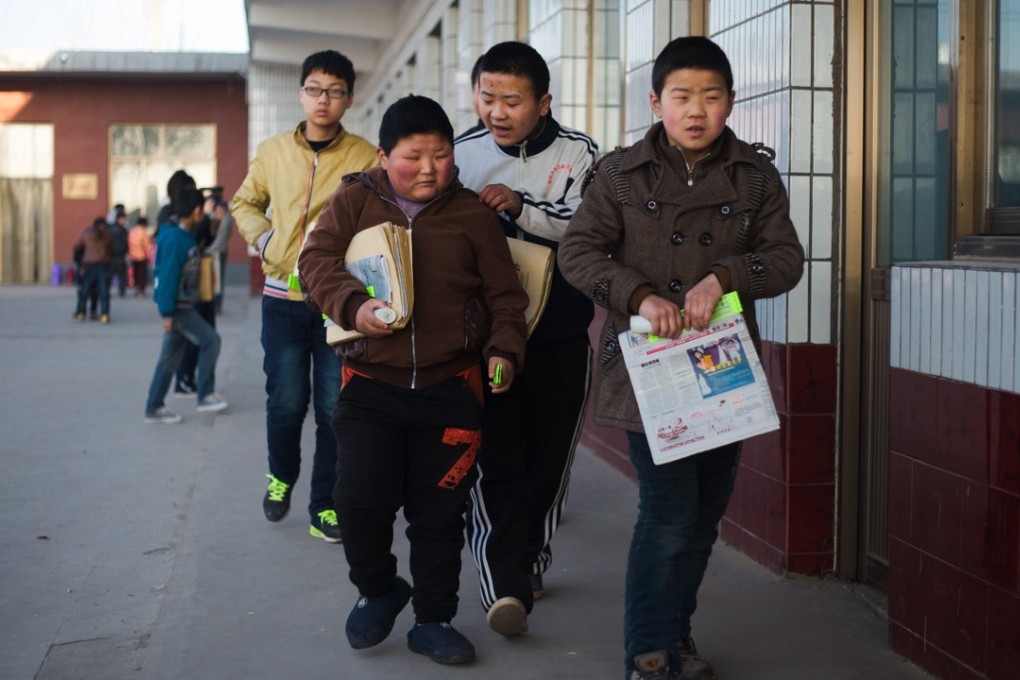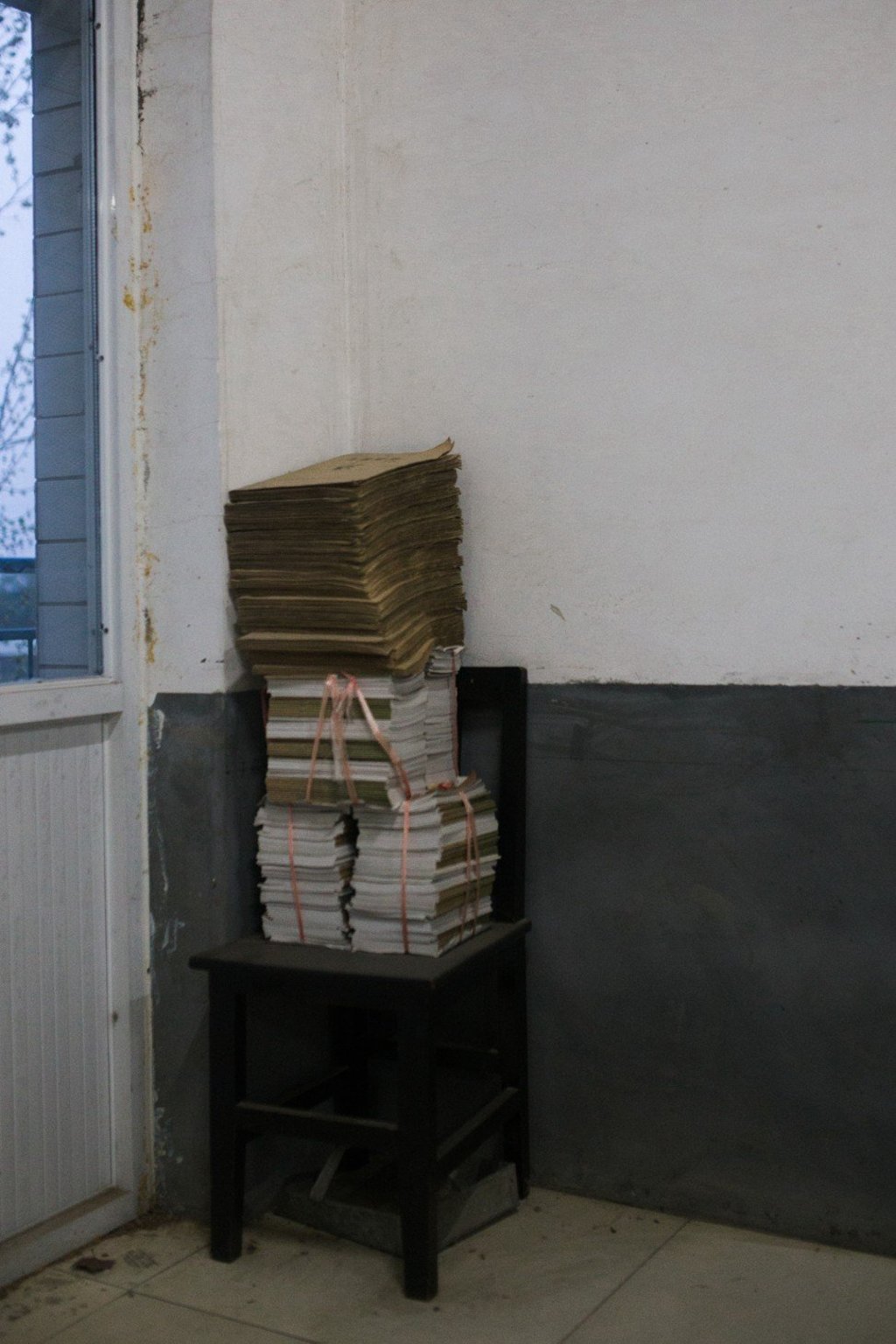School for the blind offers beacon of hope for disabled in rural China
- Training students to become masseurs clears path to financial, social independence
- Corporate partnerships help plug funding gaps left by glacial government progress on rights for disabled

At 6am, a short drive from the steel-producing city of Xingtai, deep in the rural flatlands of northern China’s Hebei province, acrid pollution hangs heavy in the air and the monotonous landscape is desaturated of colour. At the Mu Mengjie School for the Blind, home to 100 or so visually impaired students, a caretaker sweeps away leaves that fell in the night.
The children, in dormitories lining a courtyard, stretch and rise for their morning exercises. They gather in rows under the watchful eye of their teacher, who leads them in a series of stretches, jumps and synchronised movements.
Each row is monitored by one child, who walks up and down, checking his or her classmates’ feet are in the right position, and correcting them if they are not. A song plays over a loudspeaker as the children shuffle and dance themselves to wakefulness.
One of those monitors is 16-year-old Shungze, who is among the 75 million people in China recognised by the World Health Organisation as living with some sort of visual impairment. Three quarters of these live in rural areas, where a chronic lack of infrastructure means many disabled children do not attend school.
“I am one of the oldest in the school and I have to take care of my [two] brothers and sister [also students at the school]. If they need anything, they will tell me and I can go and tell the teachers,” says Shungze, overcoming his initial shyness to reveal a quiet confidence. Sitting across from me in a classroom, he shuffles his feet, curious.

The blackboard is covered in characters, wooden desks are arranged in tidy rows. On a table in the corner, Braille textbooks are stacked. The books are waxy with use, many children having run their fingers along the small bumps protruding from their browning pages.